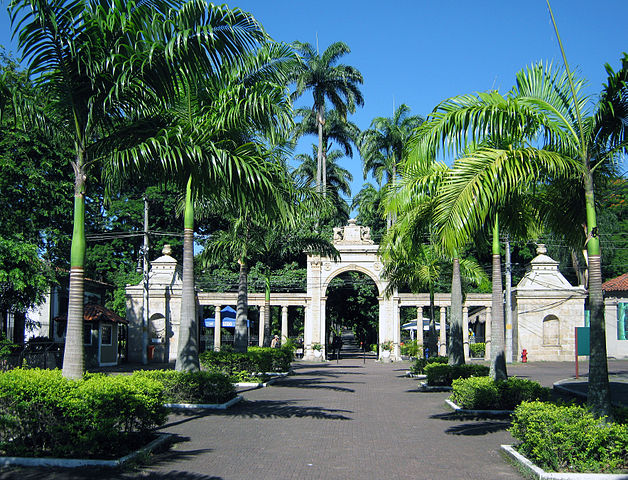Your cart is empty
Lottery 03 May 2017
Jogo do Bicho and Modern Brazilian Lotteries
Brazil Lottery: The Curious Case of the Animal Lottery

The Animal Lottery, a rough translation of the Brazilian ‘Jogo do Bicho’, was not developed by governments or heads of states. Instead, this unusual lottery was born in a small zoo on the outskirts of Rio de Janeiro. From those humble beginnings, it grew to become one of the most popular lotteries in the history of Brazil, and has thrived for over a hundred years despite the efforts of successive governments to shut it down.
The Birth of Jogo do Bicho
The owner of the zoo in question was a colourful character by the name of Baron João Batista Viana Drummond, a gentleman with considerable entrepreneurial flair who had become friends with the popular Emperor Dom Pedro II of Brazil. This friendship resulted in not only the honorary title of Baron for Mr Drummond, but also the emperor allowing him to purchase prime lands on the western edge of Rio – and next to the Imperial Gardens - for a very low price. Baron Drummond was an animal enthusiast and again his friendship with the emperor proved advantageous, as the Baron was granted a licence to import exotic animals to Brazil. As his collection grew he established the first zoological gardens in Brazil in 1888, on the same site where the Rio Zoo stands today.
The Zoo Animal Lottery
Unfortunately for the good Baron, ticket sales for his zoo were slow and so he devised an ingenious method to attract more customers. In 1892 he came up with a lottery game based around the 25 different animals which he had in the zoo at that time, with each of them representing 4 numbers from 00 to 99. So for example the ostrich was 01/02/03/04, the elephant 45/46/47/48, and so on. When customers entered the zoo they purchased a ticket, and the last two digits of the ticket corresponded with a particular animal.
At the start of the day a small cloth-covered cage was hung from a mast beside the zoo gates, and inside the cage was a symbol representing that day’s randomly chosen animal. In the early evening the cloth would be removed to reveal the animal of the day, and all the fortunate ticket holders could collect their cash prizes of 20 times the admission fee. Of course, waiting until the end of the day meant that the customers spent their cash buying food and souvenirs in the zoo, meaning that the Baron was able to turn a pretty penny from this creative lottery.

Escape from the Zoo
Soon people started buying tickets without even entering the zoo – often more than one - and people around the city could be seen selling tickets for this animal lottery game. This started to cause problems, since gambling was illegal in Brazil at the time. While the police had originally given the green light for the project as a way to encourage visitors to the zoo, the latest developments became something of a concern for the authorities. Various loopholes in Brazilian laws meant that the Animal Lottery continued to be operated by the zoo for some years to come, although a 1941 law expressly prohibited games of chance which included the famous Jogo do Bicho.
By then, however, Jogo do Bicho had long since spread far beyond the confines of the Rio Zoo. The game captured the popular imagination in Brazil, not just in Rio but in towns and cities all over the country. One of the reasons for its popularity was the low cost of a ticket, as people could buy entry for very low stakes. Apart from offering freed slaves and immigrants to big cities the dream of a lottery win, it also provided jobs in the sales and distribution networks which built up around the local versions of the Animal Lottery. The game also tapped into the superstitions and mythos around Brazilian culture, and often tickets were bought based on dreams of a particular animal the night before a draw.
Jogo do Bicho in Brazilian Culture
Despite its illegality, Jogo do Bicho has continued to be played right up until today, and in many ways become a part of Brazilian culture. Operators of the lottery started to donate some of the proceeds to Samba Schools, leading to an association of the lottery with the famous Carnival in Brazil in the eyes of many. Likewise it is known that owners of football teams have also been bicheiros (lottery bosses), linking the country’s most famous sport to the lottery. In fact back in the 1920s, before local footballers were paid wages, fans would organise funds which came from the Bicho game to pay them according to the performance of the team. A truly outstanding performance would reward the players with a ‘cow’, the 25th animal in the ‘Bicho’, corresponding to a payment of 25,000 Brazilian Reals to the players.
The reason that this 19th century lottery has endured to this day is not simply because of popular sentiment. Although the Jogo do Bicho has been illegal since the forties, countless politicians and police officers have been persuaded to look the other way thanks to a slice of the profits being funnelled in their direction. Even those who were arrested for involvement with the lotteries rarely went to jail, with a conviction rate of just 4% for those who were caught. Money laundering has also long been associated with this unregulated lottery, which naturally causes problems for the law-makers of the country too.

Legitimate Brazilian Lotteries
The game of Jogo do Bicho is still popular in the 21st century, although the rules have expanded somewhat since the Baron’s original game was invented. Now there are a huge variety of different ways to win, even though the basic concept remains the same. Local draws are generally carried out at around 2pm with the winning number scrawled on designated walls or signs around the neighbourhood. Of course the draws are not always fair, as the bosses cannot afford to pay out on numbers which have been chosen by too many people, meaning that such numbers can be ‘disregarded’ when they are drawn.
Fortunately, today Brazil runs legal and regulated lotteries which are completely fair and above board. The largest of these is the famous Mega-Sena Lottery, organised by the Caixa Econômica Federal bank, where prizes regularly exceed tens of millions of dollars. Another popular regulated lottery is the Brazil Quina Lottery, which is run by the same bank and which holds draws 6 times per week. You can bet on both of these hugely popular South American lotteries at Lottoland, where we also give you the opportunity to win an amount worth twice the normal jackpot using the Double Jackpot feature. Low cost stakes and massive jackpot prizes make these two Brazilian lotteries worthy heirs to the tradition of lottery gaming in this beautiful country.
D
by
David
Lotteries are about much more than random numbers. There are so many fascinating stories about the people who take part in lotteries, and I enjoy being able to share those stories on these pages.

